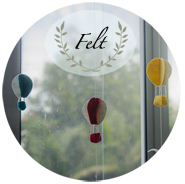 The King Ant at his K1 Speech and Drama performance in Nov 2012
The King Ant at his K1 Speech and Drama performance in Nov 2012
1 month before the performance, I asked him if he could remember his lines. He recited them for me without referring to the handouts and was so confident that he could remember.
A week before the performance, I asked him again. And he told me that it was easy and he would have no problems.
He was ready, or so I thought.
Watch the video (excuse the shakiness :P) and see how his performance turned out. K is the tallest one in the group of yellow ‘ants’, who was wearing a gold ‘bib’.
Looked like he was being particular about where the mic was placed and did not want to say his lines until the mic was leveled to his face, isn’t it?
His performance was far from perfect and it did generate some laughs from the audience along the way. Hb and I were disappointed when we finally received the DVD recently, and realized that the videographer edited the capture and it became a boring, almost perfect sketch in the video. Regardless of the result of the performance, it was a memorable experience for hb and I. While K on the other hand, thought that that his performance must have been quite a disappointment for us to watch.
He was really moody after the performance (photo taken above), right after the concert ended. He didn’t tell us why until we got home that night. Just before bedtime that same evening, he admitted that he actually forgot his lines, and he told me that he would not want to watch the video as his performance was horrible.
Our conversation that evening;
Mom : “Do you think you tried your best that night?”
K : “I don’t think I tried my best. I did not practice my lines properly.”
Mom : “You know that you didn’t put in your best effort, and why it didn’t turn out well. We are not disappointed in your performance on stage. It’s normal to make mistakes. We just want to make sure that you understand that you need to take the initiative to practice your lines. It is only when you know you tried your best, and if you still made some mistakes at your performance, you can be satisfied that you have gave your best. That’s all that matters. .”
**———————————————————————————–**
Hb and I have already discovered a while back that K has issues with his self-motivation and initiative. We are using opportunities like these for him to experience failure and disappointment, so as to learn the importance of having initiative and be driven by his self-motivation.
Charlotte Mason has put it so aptly in her quote that there is a downside when children are nurtured to be overly dependent on external motivation and rewards.
‘Children must Stand or Fall by their own Efforts.––In another way, more within our present control, we do not let children alone enough in their work. We prod them continually and do not let them stand or fall by their own efforts. One of the features, and one of the disastrous features, of modern society, is that, in our laziness, we depend upon prodders and encourage a vast system of prodding. We are prodded to our social duties, to our charitable duties, and to our religious duties. If we pay a subscription to a charity, we expect the secretary to prod us when it becomes due. If we attend a meeting, do we often do so of our own spontaneous will, or because somebody asks us to go and reminds us half a dozen times of the day and the hour? Perhaps it is a result of the hurry of the age that there is a curious division of labour, and society falls into those who prod and those who are prodded. Not that anybody prods in all directions, nor that anybody else offers himself entirely as a pincushion. It is more true, perhaps, to say that we all prod, and that we are all prodded. Now, an occasional prick is stimulating and wholesome, but the vis inertiae of human nature is such that we would rather lean up against a wall of spikes than not lean at all. What we must guard against in the training of children is the danger of their getting into the habit of being prodded to every duty and every effort. Our whole system of school policy is largely a system of prods. Marks, prizes, exhibitions, are all prods; and a system of prodding is apt to obscure the meaning of must and ought for the boy or girl who gets into the habit of mental and moral lolling up against his prods.’ – Charlotte Mason Chapter 4, Volume 3





























